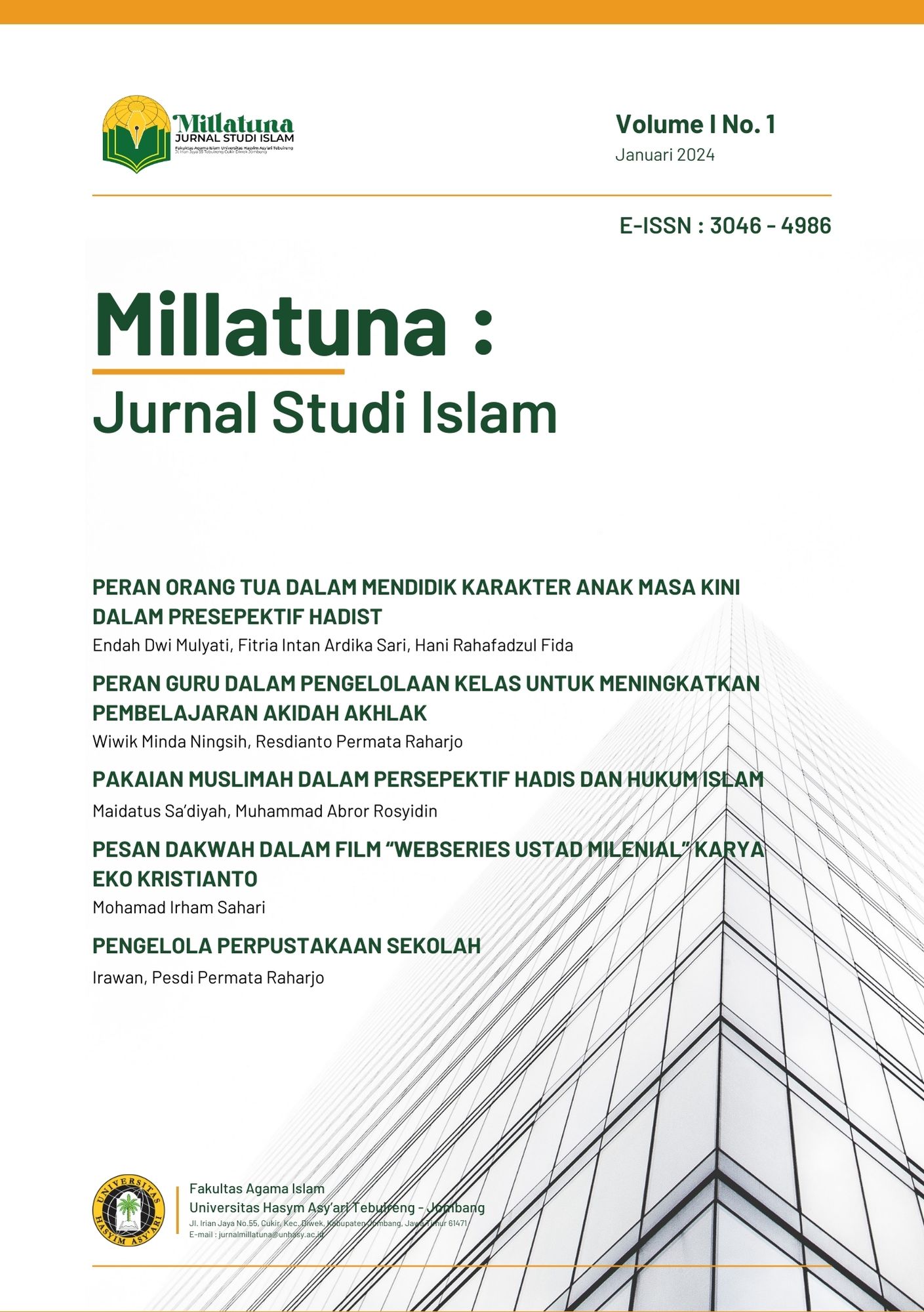Pesan Dakwah dalam Film “Web Series Ustad Milenial” Karya Eko Kristianto
DOI:
https://doi.org/10.33752/mjsi.v1i01.5878Keywords:
Analisis Semiotika, Pesan Dakwah, Web Series Ustad MilenialAbstract
Preaching is not only done in mosques, prayer rooms, or in recitation events. But for the current era, films can also be used as a medium for preaching among the public. Film is a work of art produced by teamwork. Films require scenarios, actors, directors and other people who take part in the film production process, from cameraman, editor, lighting, art director, music arrangement to script writer. Da'wah media through art and culture can be more memorable in matters relating to the delivery of Islamic teachings. This can be a good opportunity for da'i to preach when the effects of the film can be filled with content that contains Islamic teachings. The formulation of the problem discussed in this thesis is what is the message of da'wah contained in the Ustad Millenial Web Series film. This study used qualitative research methods. The purpose of this study is to find the message of da'wah contained in the Web Series film Ustad Millenial. The data collection technique used is in the form of documentation. To answer the problem formulation described above, the researcher uses a qualitative approach using Charles Sanders Peirce's semiotic analysis model. As a result, researchers found several da'wah messages in the Millennial Ustad Web Series film, including: (1) The responsibility of a teacher to his students. (2) Muslims must always strive and pray to Allah SWT. (3) The obligation of a child to be filial to parents. (4) Prohibition of bribery in business. (5) The beauty and obligation of prayer for Muslims. (6) The firmness of the Muslim faith. (7) The law of interest in Islam. (8) Suggestions to say and answer greetings.
Downloads
References
Kementrian Agama Republik Indonesia, Al-Qur’an dan Terjemahannya (Jakarta: Ikrar Mandiri Abadi, 2011), hal. 381.
Kusnawan, Buku Berdakwah (Bandung: Benang Merah Press, 2004) hal. 96.
Faturrahman, Arif Rumata, Muh Iqbal, Asman, Jurnal Ilmu Dakwah, Volume 41 No 2 (2021)file:///C:/Users/Lenovo/Downloads/9421-31681-1-PB.pdf (diakses pada 16 Juni 2022)
Novita Sugiestian, Peran Dakwah Dalam Problematika Masa Remaja, Institut Agama Islam Negeri (IAIN) Parepare, (Diakses pada 16 Juni 2022 file:///C:/Users/Lenovo/Downloads/Novita%20Sugiestian%20Metode%20Dakwah.pdf)
Ade Irwansyah, Seandainya Saya Kritikus Film (Yogyakarta: CV Homerian Pustaka, 2009), hal.16
Onong Uchjana Effendi, Ilmu, Teori, dan Filsafat Komunikasi, (Bandung: PT. CitraAditya Bakti, 1993), hal. 209.
Elita Sartika, Analisis Isi Kualitatif Pesan Moral dalam Film Berjudul Kita Versus Korupsi, Dalam e-Jurnal Ilmu Komunikasi, Vol. 2, No. 2, 2014, hal. 65.
Nawiroh Vera, Semiotika dalam riset komunikasi,(Bogor: Ghali Indonesia, 2014), hal.2.
Deddy Mulyana, Metodologi Penelitian Kualitatif (Bandung: Rosdakarya, 2004), hal. 145.
Sutrisno Hadi, Metodologi Riset (Yogyakarta: Andi Offset, 1989), hal. 4.
Andi Prastowo, Metode Penelitian Kualitatif Dalam Perspektif Rancangan Penelitian, (Jogjakarta, Ar-ruzz Media, 2016, hal.24)
Lexy J Moleong. Metodologi Penelitian Kualitatif Edisi Revisi (Bandung: PT Remaja Rosdakarya. 2016) hal. 157.
Downloads
Published
How to Cite
Issue
Section
License
Copyright (c) 2024 Mohamad Irham Sahari

This work is licensed under a Creative Commons Attribution 4.0 International License.









